[MUSAI] Quality Assurance: The Last Piece of the Puzzle to Complete Localization Quality
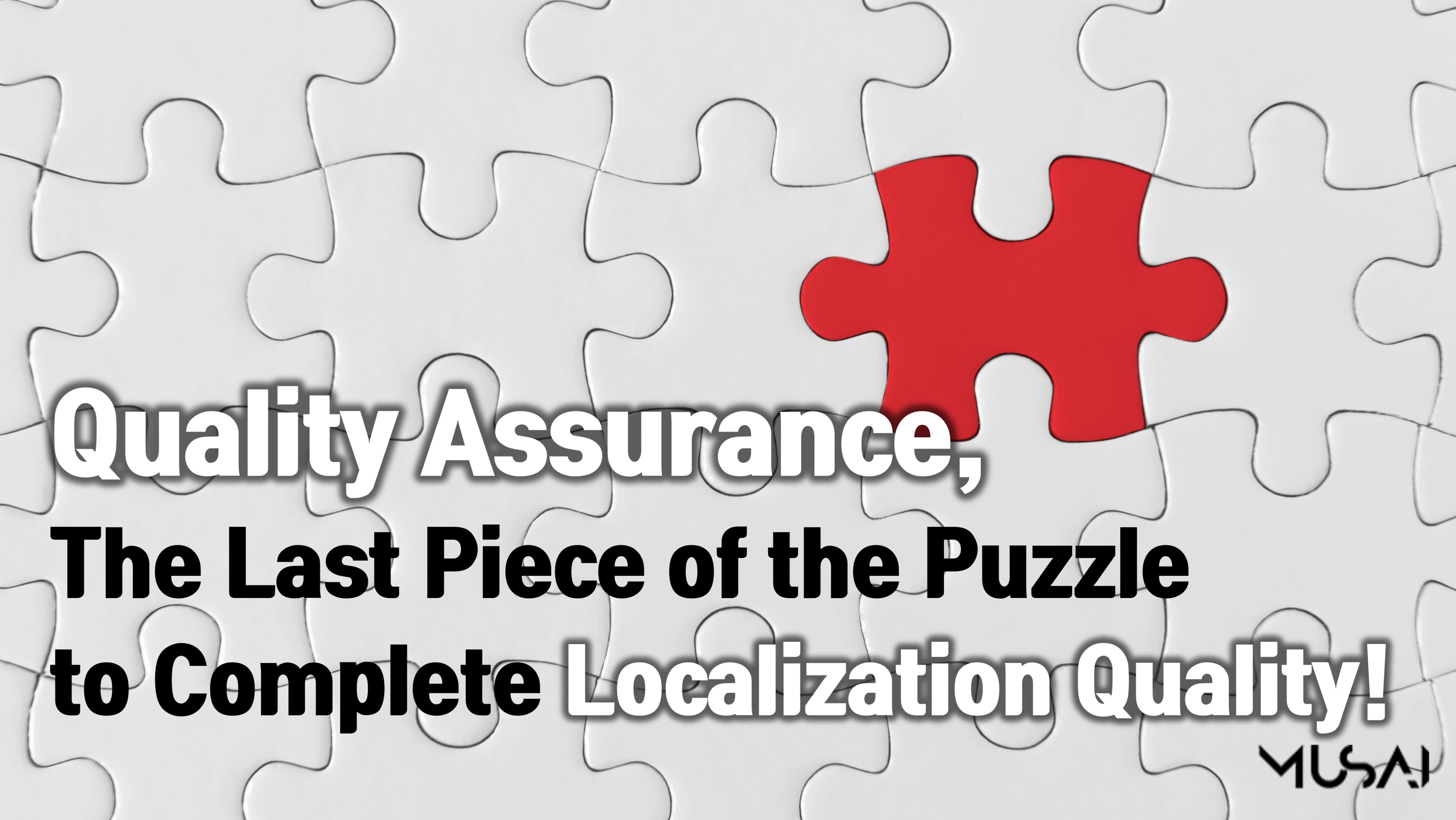
2021-09-17
The meaning of ‘Localization Quality Assurance (LQA)’, which is commonly used in the current game market, is a process to check whether errors occur when the localized text and voice are applied to the build. The process seems one of the testing process, but everything related to localization should be checked such as broken words, missing sentences, and the use of honorifics in character-to-character conversations. In addition to the name ‘LQA’, it is also called diversely as ‘Localization testing’, ‘Linguistic testing’, and ‘Localization build testing’, etc.
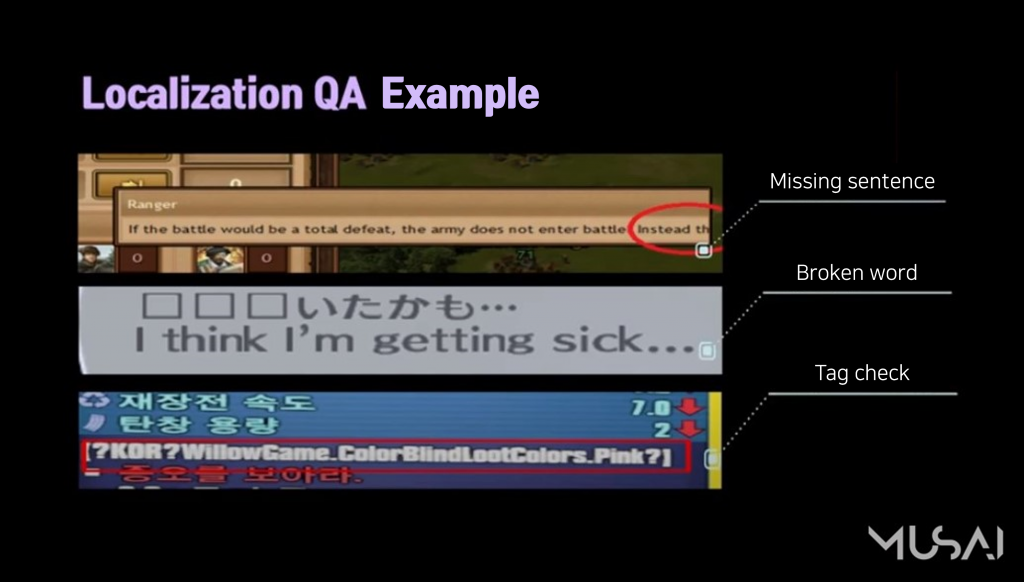
Another QA Required in the Localization Industry
Besides LQA, there is another QA process that localization agencies like us fulfill importantly. In fact, LQA is close to a testing process but the QA we will discuss today means the final check to assure the localization quality. It is to check whether the completed localization meets the instructions that the client provided and to prevent any errors that may occur before delivery to the clients. In today’s article, we will talk about the final QA in detail why localization companies should go through and how this makes a difference in quality.
“We Provide the High-quality Localization Service”, How Do You Prove It?
Most localization agencies essentially emphasize “high quality” as a sales strategy. For example, “we provide high-quality localization with low price and fast process for your project!” like this. All agencies are confident with their “high-quality” service, but there is a following question – “how do you prove it?”
Game companies looking for localization agencies take indirect methods to figure them out such as portfolio, company history & scale, employees’ experience, and sample translation. However, these factors can’t prove the localization quality enough, which is the most important factor, and actually the best way is to work on the project with the agency you select.
Even after the localization project has been done, the result of the evaluation can be very different depends on who does the evaluation and what criteria is applied, particularly in the case of gaming content which is very subjective. Therefore, some of the major game companies have their own standards for quality and evaluate the localization work based on it.
It makes sense that the clients present the standards for quality and evaluate the result of work after using the service. Likewise, the agencies naturally try to get a good evaluation result. Even it can be said that agencies have an “obligation” to guarantee a certain level of service quality. In this respect, the QA process is the final gateway to ensure the level of quality, not just saying the promotional phrase ‘a company that provides high-quality localization service’.
Why is QA, the Last Gateway to Determine the Quality, So Difficult to Do?
The development cycle of game products is getting shortened, and that means the localization period is also shortened accordingly. Even just getting all the process done properly is not easy within the provided schedule. (There are a lot to say if we blame the environment changing rapidly.) The clients understand these difficulties, but the launching schedule doesn’t wait for us anyway. As a result, except for essential tasks, the ones considered less important are pushed back in the priority or skipped. The glossary creation that we discussed in the previous article is a representative example of skipped tasks. (See. Why LSPs don’t create a glossary for your game anymore? http://blog.musaistudio.com/musai-why-lsps-dont-create-a-glossary-for-your-game-anymore)
The same goes for QA. When major tasks are completed in a tight schedule, the delivery date has already approached. As long as time permits, a basic level of QA can be carried out before delivery. However, it is sometimes replaced with a partial QA performed by each worker in the review stage and post-production stage which are not the final stage of the process. If the final QA process before delivery is skipped like this and no problem occurred, it becomes a habit.
How to Do QA Effectively to Improve the Localization Quality?
As mentioned earlier, localization agencies have to guarantee a certain level of quality in any cases. However, localization is done by human resources. Even if the working process is perfectly completed, potential errors and mistakes can be hidden in thousands of files. There may be no errors and goes well without QA process luckily. However, on the other hand, you may have to pay a huge price of ‘broken trust with the client’ because of the errors that have not been discovered.
Moreover, the standards for game localization demanded by the gaming market are raising. In order to meet the level of quality that the market expects, the QA process – not only simple errors check but also the deliberate quality management such as reflecting style and trend, is inevitable.
So, how to proceed with QA? The QA process is mainly carried out for the completely localized files which are ready for delivery to check the errors at the end. Not only the basic items such as the names and numbers of files but also the specific requirements provided for each project from should be checked during the process and create a report of the result. And then, it should be selected which parts are needed to correct and apply to the files based on the report. Here are some tips to keep in mind:
- When setting up a localization schedule, be sure to set up the time for QA even if the provided schedule is tight.
- Assign who will apply the QA result in advance. If possible, appoint the person in charge among the lead or senior level resources who fully understand the project.
- After applying the result from the QA report, be sure to check the files again before final delivery. This is because incorrect corrections may be applied during the QA process.
What Tools are Used for the Final QA?
Now, let’s find out representative tools that can be used for QA. If you want to see more detail information about tools, please find the previous articles “Useful Software to Boost Your Game Localization Process” series.
Useful Software to Boost Your Game Localization Process, ① In-game Text Localization
Useful Software to Boost Your Game Localization Process, ② Voiceover
Text Localization
- QA function provided within CAT Tools such as <MemoQ>
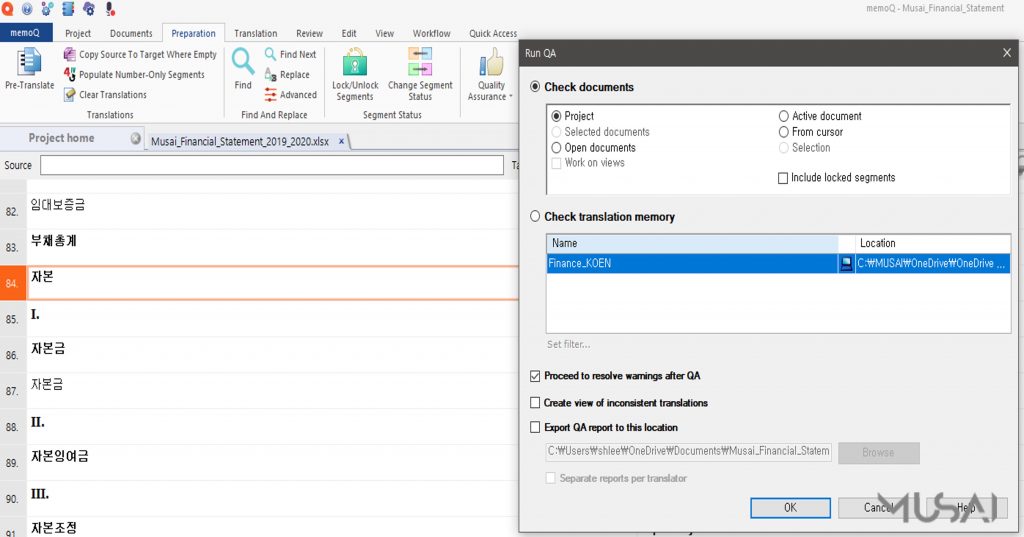
- QA Software, <Xbench>
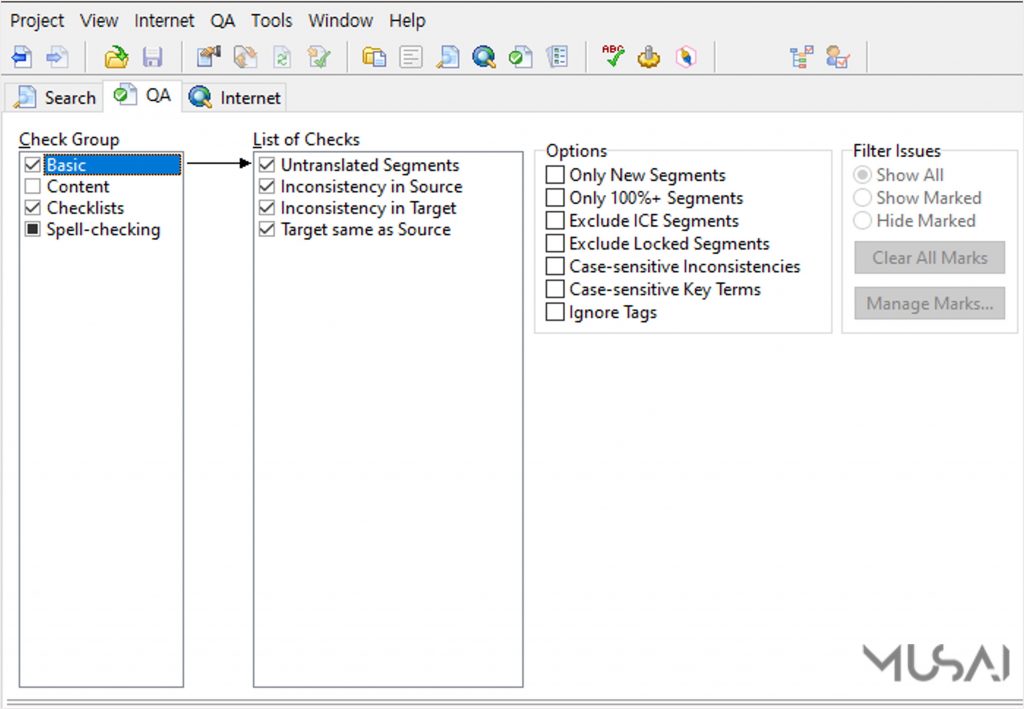
Voice-over
- Audio QA software, <Alto Studios>
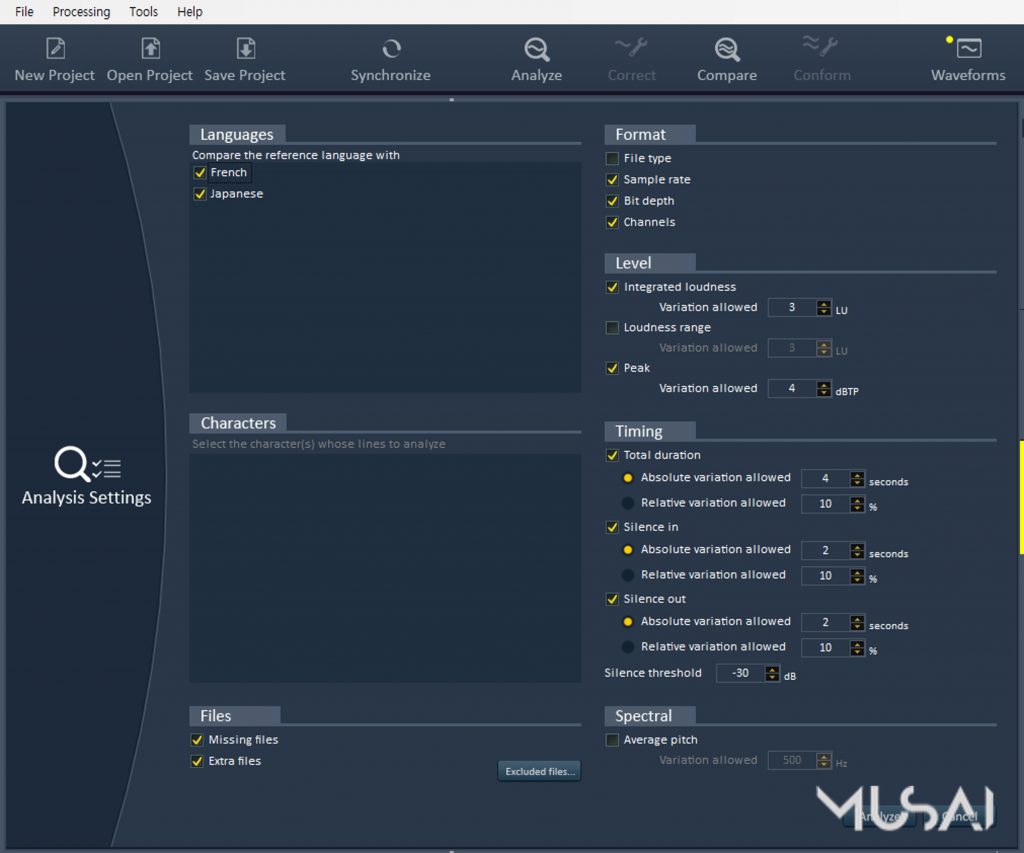
- There are various types of software that can check the name, number, and specification of files, etc. <MediaInfo> is one of the examples.
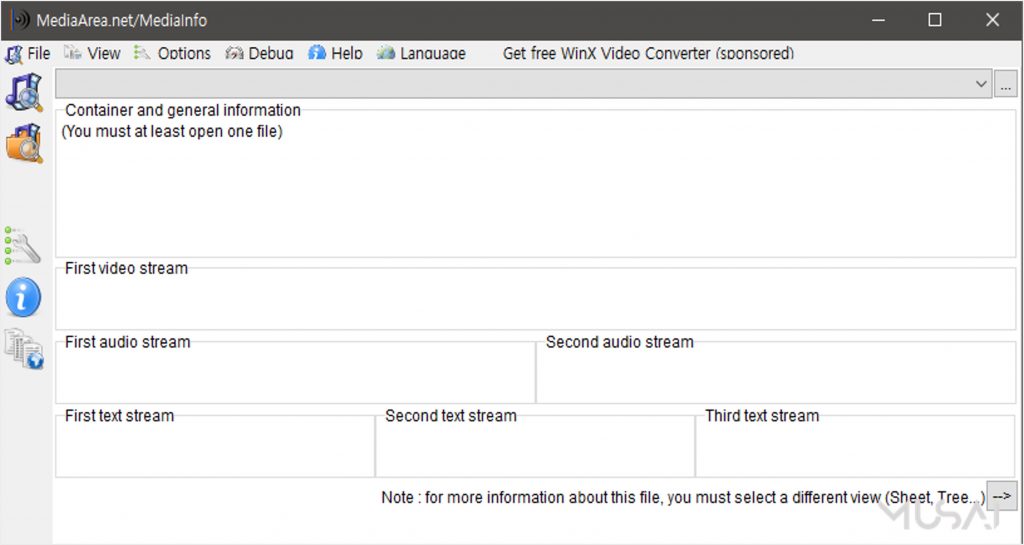
The final QA maybe not an interesting topic for blog articles because it’s about a story behind the localization field. However, QA is an essential step for quality improvement but is also an area that can be easily neglected in a busy schedule at the same time. That’s why we have discussed it in today’s article to remind the importance to those in the localization industry, and to share insight about the localization industry to clients looking for a long-term partner who cares about the service quality the most. Musai Studio will do our best to become a reliable studio providing a satisfying quality of service.
** Did you enjoy the news of Musai? Please click subscribe and share the story.
BOOST YOUR PLAY! Musai Studio







